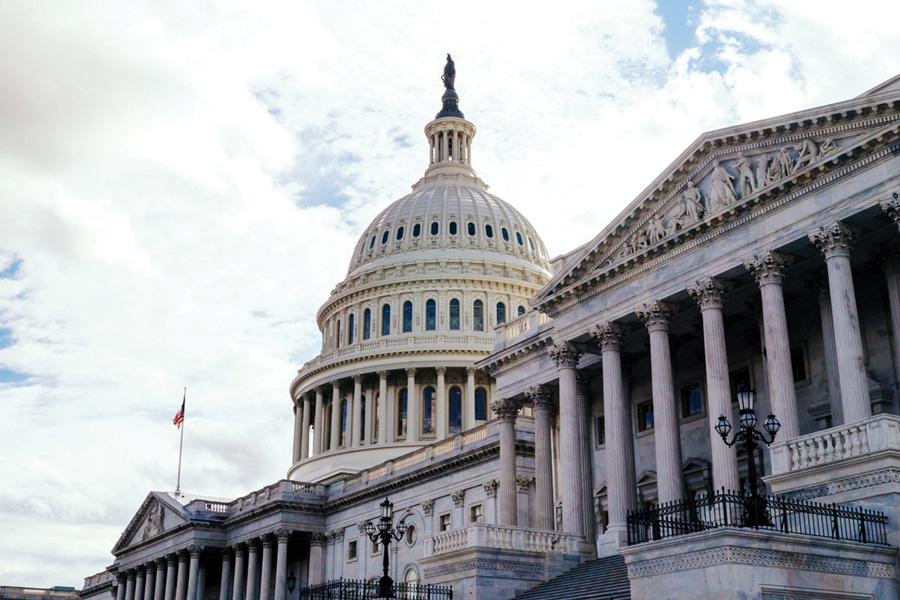

In a budget proposal released Monday, the Trump administration assumes that tax cuts set to die in 2025 would live on — a move that almost certainly will hit resistance on Capitol Hill.
The $4.8 trillion White House budget for fiscal 2021 projects a $1.1 trillion deficit for 2020 that drops to $986 billion in 2021. The budget would balance in 2035, according to Trump administration estimates, thanks in part to $4.6 trillion in deficit reduction over the next decade.
In order to construct the baseline for the projections, the budget assumes that the reduction in individual tax rates, as well as estate and gift tax rates contained in the 2017 tax reform law, would extend beyond 2025, when they’re currently set to expire.
“The 2021 budget supports the extension of the individual and estate tax provisions of the Tax Cut and Jobs Act beyond their expiration in 2025 … to provide certainty for taxpayers and to support continued economic growth,” the budget analysis states.
Palmer Schoening, chairman of the Family Business Coalition, is lobbying Congress to lock in the 2017 tax cuts.
“What the Trump administration is proposing in the president’s [full-year] 2021 budget would provide predictability to small businesses, which are currently facing the prospect of higher taxes [soon] if the current law is not extended,” Mr. Schoening wrote in an email. “Locking in these rates would let business owners know that their taxes won’t spike and their succession plans won’t be thrown out in 2026, costing them time and money in estate planning fees to rework how to pass their businesses on to the next generation.”
Fight looms in Congress
But there is no chance the Trump administration budget proposal will get through Congress intact. The Democratic majority in the House signaled it won’t go along with President Donald J. Trump’s approach to reducing federal spending.
“Less than a week after promising to protect families’ health care in his State of the Union address, the president is now brazenly inflicting savage multi-billion-dollar cuts to Medicare and Medicaid,” House Speaker Nancy Pelosi, D-Calif., said in a statement Sunday night.
Extending the tax cuts would cost the government $1.5 trillion between 2025 and 2030, according to the Committee for a Responsible Federal Budget.
Trying to make significant changes to the tax code this year is not likely, said Marc Gerson, a member at the law firm Miller & Chevalier.
“The revenue issue is a very significant one, especially in an election year,” Mr. Gerson said.
But the tax policy contained in Mr. Trump’s budget will likely become campaign fodder.
“It will stand in contrast to the proposals of the Democratic presidential candidates,” Mr. Gerson said.
SEC requests budget increase
The administration’s budget proposal includes $1.9 billion for the Securities and Exchange Commission, an increase of about $80 million from its enacted fiscal 2020 budget.
The budget boost would allow the SEC to add 30 positions to “enhance the agency’s depth of expertise in emerging or evolving areas relating to financial innovation, cybersecurity, small business capital formation, and market oversight, as well as other policy and operational areas,” the SEC states in its budget request.
At the beginning of the current government fiscal year, Oct. 1, the SEC said it oversaw nearly 13,500 registered investment advisers with $84 trillion in assets under management.

Former Northwestern Mutual advisors join firm for independence.

Executives from LPL Financial, Cresset Partners hired for key roles.

Geopolitical tension has been managed well by the markets.

December cut is still a possiblity.

Canada, China among nations to react to president-elect's comments.
Streamline your outreach with Aidentified's AI-driven solutions
This season’s market volatility: Positioning for rate relief, income growth and the AI rebound
